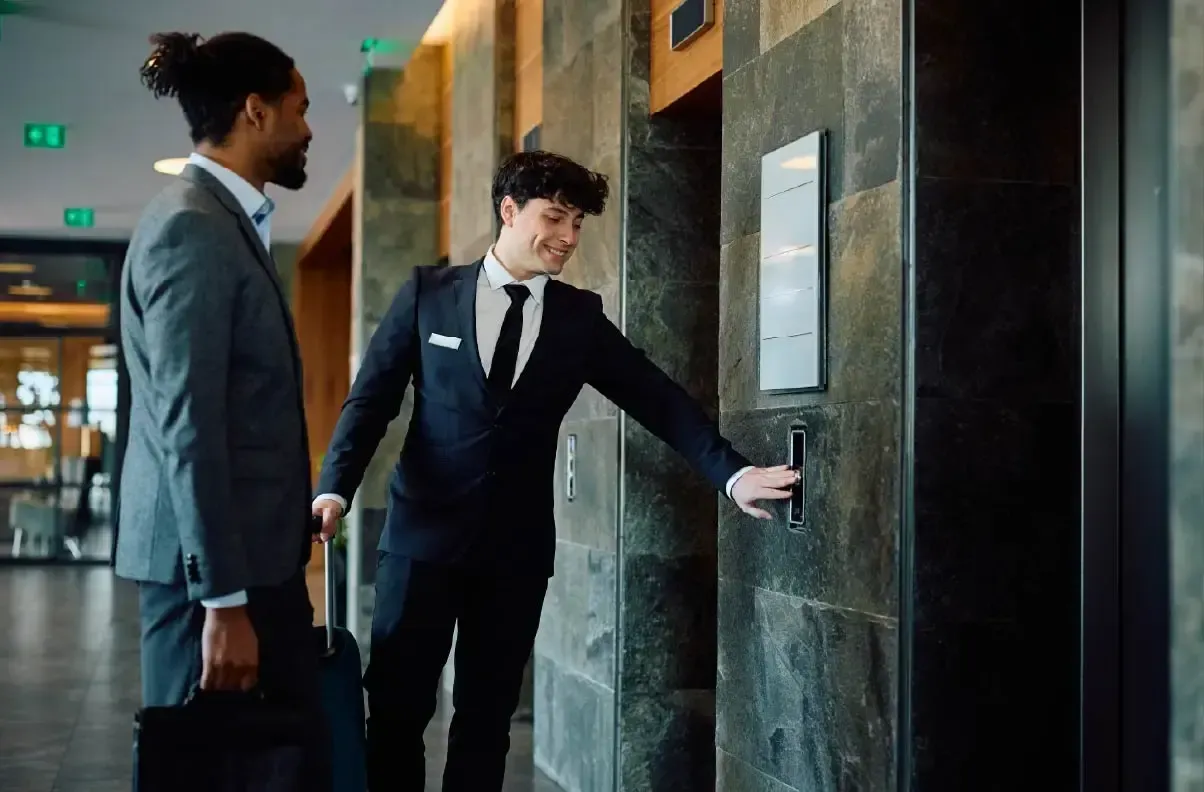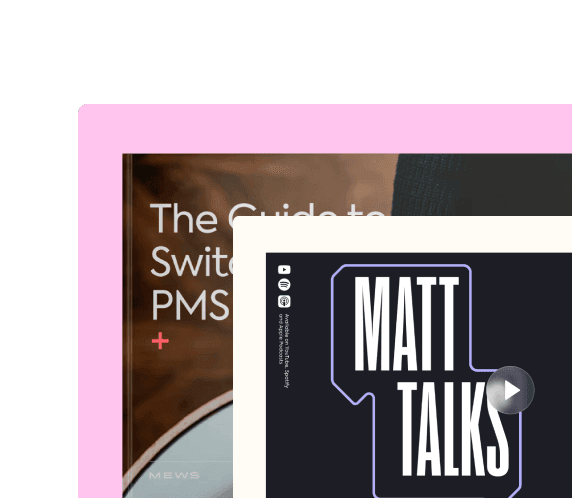Transient business is made up of itinerant travelers who are looking for short and often urgent hotel stays. This group includes walk-in guests, business travelers, last-minute bookers and those who require a short-term stay.

You might ask: what makes this segment interesting? The key lies in the fact that they’re willing to pay a standard rate but they don’t require a lot of your hotel’s manpower. They might just as easily stay overnight and check out immediately the next morning after breakfast. They are essentially looking for a basic, clean room without all the bells and whistles. This translates into little effort for a reasonable profit margin. Plus, transient guests tend to book directly with the hotel, making the margin even greater by cutting out the OTA middleman.
Some strategies for attracting this type of guest are adjusting the room rates, playing around with promotional deals (like offering a complimentary breakfast for last minute bookings) and listing your hotel at various online travel agencies, which will help to increase your visibility.
In this article, we’ll discuss transient business, the benefits it brings to your hotel, and strategies to increase these guests visiting your property. Let’s dive in.
What is transient business?
Hotel business can be classified into group and non-group travel, and transient business lies under the non-group travel segment. This segment is usually occupying no more than 10 rooms per night.
Transient guests are further broken up into three different categories based on how they book: walk-ins (those who arrive at the hotel and pay the day rate at the front desk), online reservations (usually made directly through the hotel’s website), and phone reservations.
Transient business doesn’t only consist of business travelers, but also those leisure travelers who book day-of and usually stay for a short period of time. They are generally looking for convenience, ease of booking and a comfortable night’s stay at the hotel.
They are generally on-the-move, perhaps on a road trip, and they will choose where to stay depending on how far they can make it in a day. Or it may be a city tripper who books a three-day weekend last minute.
What are the benefits of transient business travelers for your hotel?
Transient business can be beneficial for your hotel because this type of traveler requires little investment and they can occupy rooms that would otherwise go unbooked. This target audience plays an important role in hotel revenue management. They also represent a strong potential to be repeat guests.
In addition, since they are most frequently making last minute bookings, you can capitalize on this urgency to give a rate that’s most beneficial to the hotel. The turnover with this kind of guest is usually quite quick, so you don’t have to worry about them occupying the room for a long period or getting in the way of longer, more profitable bookings, because they usually move on quickly to the next destination. Furthermore, they are usually low-maintenance guests meaning that they are really just looking for a good night’s sleep, so you won’t need to fuss over them.
How to attract and increase transient business to your hotel
Attracting transient business to your hotel can be a great strategy to increase otherwise lost revenue from rooms that go un-booked. So, let’s look at the different strategies.
Offer promotional deals
Everyone loves a deal, and transient travelers are no different. Offering promotional deals through your hotel’s website or app is a great way to encourage guests to book your property over others. Since transient guests are often city trippers or cultural travelers looking to spend a day in the city exploring the sites, you could consider offering a free bike rental, a guided tour, or you could even throw in a free breakfast just for booking last minute.
If you’re promoting your hotel on an OTA, you could also consider offering a last minute deal. Oftentimes when people use a filter to narrow down their search, the price range is the first filter they use. So for example, if you have a room night set at 105€ for last minute booking you might consider dropping it to 100€ to attract travellers searching for a hotel room in the range of 50-100€ per night. For hoteliers, this might make a huge difference to your costs but you would be more likely to attract last minute clients. Furthermore, with OTAs the hotels with promotional deals will show up first, thus improving your chance of bringing in business.
Get more visibility from Online Travel Agencies
Another strategy that can prove very effective in gaining visibility for transient travelers is to publicize your hotel on a variety of Online Travel Agencies. OTAs are a good way for this segment of clients to discover your property because the more booking platforms you are on, the more likely they are to find you. OTA travelers sometimes get a bad rap, but on the contrary, they tend to spend more money on-property, at hotel restaurants and spa services, according to Expedia Group.
Adjust your rates and minimum stay
Of course, in order to attract these wistful travelers, you need to adjust the minimum stay to only be one night. Since a lot of transient travelers are without an agenda, it’s possible they may end up staying longer, but having the minimum stay of one night makes it more likely to draw them in. You can add last minute rates, promotional rates, or a better rate for booking directly with the hotel.
Use offline marketing to lure them in
Generally speaking, in the digital age, the majority of hotel guests are coming from online channels. But one of the ideal elements of this type of guest profile is that they are often just passing by. That is to say, they might be driving or walking through your area. For this purpose, using offline marketing channels like banners and flyers advertising walk-in promotions or last minute availability are useful for attracting this type of guest.
Another effective strategy to bring in this kind of clientele is by networking via business to business relationships. This could be with competitors who can send you business when they're all sold out, for example, or by having a business relationship with tourism offices in key locations, such as city center or at the airport, as well as taxis and other tourism partners. You could even consider giving them a commission for business they send to you. These kind of relationships are key in the tourism sector to growing businesses and are also quite effective in bringing in last minute business.
Don’t underestimate the transient business traveler
We’ve talked a lot about the leisure traveler, but the transient business traveler is not to be neglected. They represent US $1.6 trillion in expenditures. This type of client is often traveling to establish new business opportunities, attend a conference, or meet business partners. The good news about the corporate traveler is that they often visit the same destination multiple times a year. Since they’re looking for convenience, if they’re happy with their hotel experience they are likely to book again.
Having a mobile app or an easy way to book online is key to attracting this sort of client. You will also want to stress the reliable WiFi connection and the ability to have laundry services. A healthy breakfast, exercise facilities, and location are all key features your hotel must have to increase this sort of business. Other interesting services to attract corporate guests are shuttle services, such as airport transfers, and fast check-in and check-outs. Finally, loyalty schemes are very helpful for retaining this market segment.
Conclusion
Transient travelers represent an interesting segment in the hotel industry. By offering promotional deals, adjusting your rates and minimum stay, and gaining more visibility from OTAs, you’re bound to attract these types of travelers. Attracting transient corporate business is also important as they represent a market segment that are likely to be repeat clients. While the biggest barrier is to get the guests through the door on the first night, once they are there, through impeccable service, you may convert them into long-time customers.
Written by

Eva Lacalle
Eva a plus d’une décennie d’expérience internationale dans le marketing, le marketing numérique, la communication et l’événementiel. Lorsqu’elle ne travaille pas, elle aime surfer, danser ou explorer le monde.










